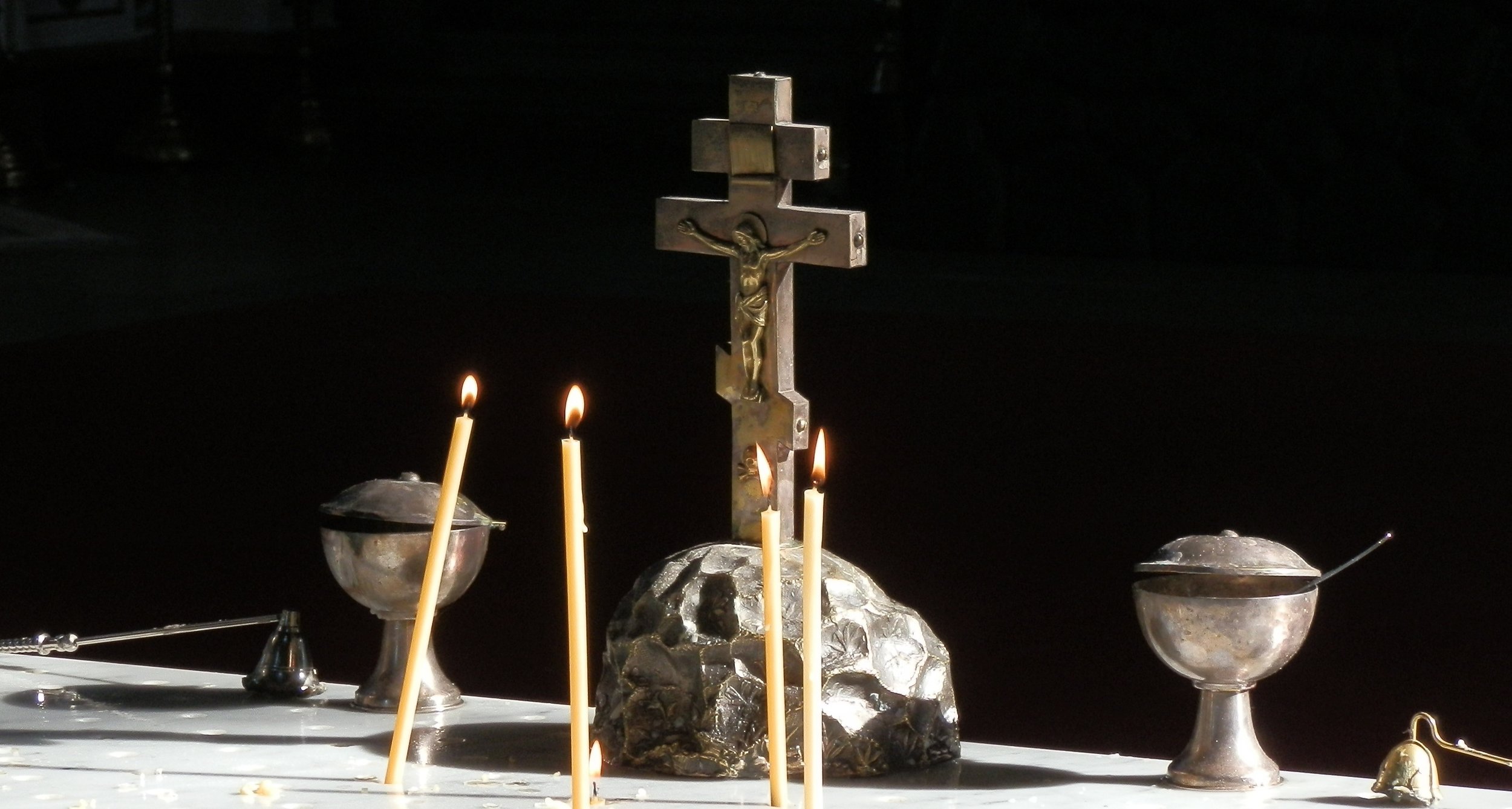Healing Atonement
Theodoret of Cyrus (c.393 - c.458 AD)
An old clay oil lamp from Nazareth, Israel. Photo credit: Olivia Armstrong.
The Writings of Theodoret of Cyrus
Theodoret of Cyrus, Demonstrations by Syllogism: Proofs That the Union Was Without Confusion (paragraph 4) discusses the union of divine and human natures in Christ, and refers to the Jewish human experience of Jesus: "An incorporeal nature is not corporeally circumcised, but the word corporeally is added on account of the spiritual circumcision of the heart; so then the circumcision is of a body; but the Master Christ is circumcised after the union." The language admits of several possible meanings, but Theodoret discusses Jesus' human fear and infirmity of soul and body at Gethsemane (par.8). This suggests that Jesus' spiritual circumcision of the heart occurred "after the union" at his death, through the full course of his human life. Theodoret is regarded as the greatest exegete of Scripture from Antioch, which was more Semitic. So his witness as a historical and theological touch point is valuable. Rarely do patristic commentators deploy the idiom of spiritual circumcision in relation to Jesus.
Theodoret of Cyrus, Demonstrations by Syllogism, Proof that the Divinity is Impassible, paragraph 15 Says that whereas we imprint our sins on our own bodies, Jesus put to death the Adamic writing of the fall upon our nature, without further sin. “If our Lord and Saviour nailed the handwriting to the cross, as says the divine Apostle, He then nailed the body, for on his body every man like letters marks the prints of his sins, wherefore on behalf of sinners He gave up the body that was free from all sin.”
Theodoret of Cyrus, Dialogue 2 writes, “for since the whole first man became subject to sin, and lost the impression of the Divine Image, and the race followed, it results that the Creator, with the intention of renewing the blurred image, assumed the nature in its entirety, and stamped an imprint far better than the first.”
TurretinFan claims that the following quote from Theodoret supports Penal Substitutionary Atonement and the later Protestant teaching of the imputation of righteousness:
Theodoret of Cyrrhus (393-466) commenting on Psalm 22:1: Let it [i.e., the LXX] therefore heed John’s loud cry, “Behold the Lamb of God, who takes away the sin of the world,” and the divinely inspired Paul’s words, “For us he made him to be sin who did not know sin so that we might become righteousness through him,” and again, “Christ redeemed us from the curse of the Law by becoming a curse for us.” So just as the one who was a fount of righteousness assumed our sin, and the one who was an ocean of blessing accepted a curse lying upon us, and scorning shame endured a cross, so too he uttered the words on our behalf. After all, if he willingly submitted to chastisement prescribed for us—“Chastisement of our peace is upon him,” the inspired author says—much more is it the case that it was on our behalf that he employed these words in our person, crying out, The words of my failings are far from saving me: do not have regard to the faults of nature, he is saying, but grant salvation in view of my sufferings. Robert C. Hill, The Fathers of the Church, Vol. 101, Theodoret of Cyrus, Commentary on the Psalms, 1-72 (Washington D.C.: The Catholic University of America Press, 2000), pp. 146-147.
However, when read in light of Theodoret’s christological framework, above, this commentary is rightly understood as recapitulation, ransom, and medical substitutionary atonement. Patristic writers understood Jesus “becoming sin” and “becoming a curse” and “assuming our sin” as referring to the incarnation: Jesus assumed a fallen human nature. His lifelong faithfulness and faithful death on the cross completed the incarnation — adding human obedience in order to complete the vocation of Israel, to imprint the image and likeness of God fully back on human nature. That is why Theodoret must inflect the Psalm differently when he hears it in the life of King David, and when he hears it in the life of Jesus. He interprets the Psalm’s mention of “failings” not as sinful actions, but as “do not have regard to the faults of nature.”
Sources of Atonement Theology
These resources explore the foundation of “Medical Substitution” as the best understanding of the Bible, and the original understanding of the church. There are also links to books, web articles, etc. from representatives of the three broad Christian traditions.





